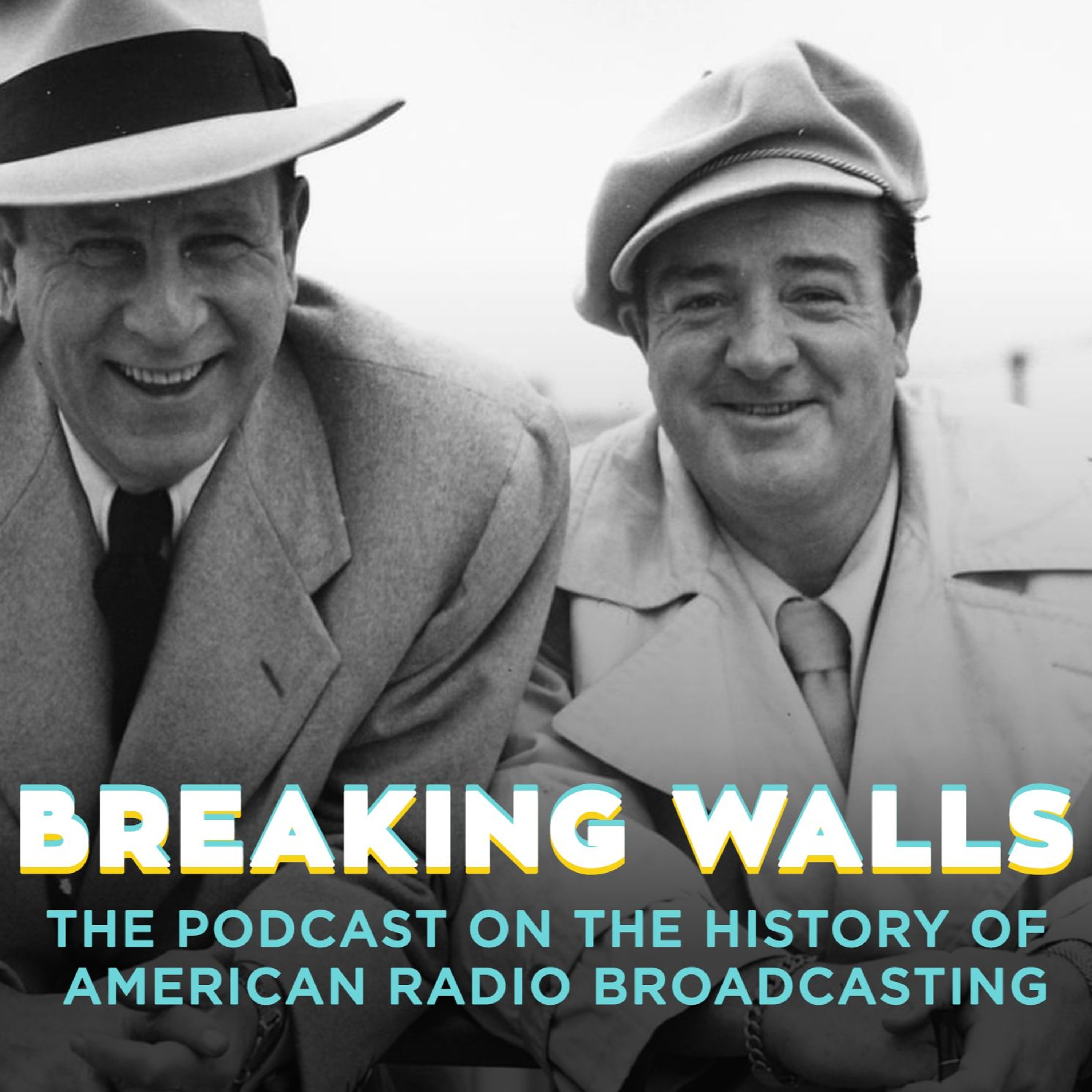Nov 11 2024 26 mins 6
Support Breaking Walls at https://www.patreon.com/thewallbreakers
Although Bud Abbott and Lou Costello are remembered for their movies, they got their start toward national fame in radio.
They’d met in 1929, when Costello was booked with a vaudeville act into a neighborhood theater. Abbott worked in the box office and soon found himself playing Costello’s straight man.
In 1938 they appeared at Loew’s in New York, where they were seen by Ted Collins, architect of Kate Smith’s career. Their slaphappy style was perfect for radio, and their rise to frontline stardom was rapid.
For two seasons, beginning Feb. 3rd, 1938, they were regulars on The Kate Smith Hour, while also appearing on Edgar Bergen’s Chase and Sanborn show. Signed by Universal in 1939, the duo pulled the studio out of financial trouble with a string of low-budget hits.
NBC gave them a summer replacement show for Fred Allen in 1940. Then in the fall of 1942 they went on the air full-time for Camel Cigarettes. They were an immediate top-ten ratings hit, and became a Thursday night comedy staple.
On Thanksgiving night in 1944 their 10PM NBC rating was 20.5, good for eighth overall on radio that week. More than sixteen million people tuned in.
Although Bud Abbott and Lou Costello are remembered for their movies, they got their start toward national fame in radio.
They’d met in 1929, when Costello was booked with a vaudeville act into a neighborhood theater. Abbott worked in the box office and soon found himself playing Costello’s straight man.
In 1938 they appeared at Loew’s in New York, where they were seen by Ted Collins, architect of Kate Smith’s career. Their slaphappy style was perfect for radio, and their rise to frontline stardom was rapid.
For two seasons, beginning Feb. 3rd, 1938, they were regulars on The Kate Smith Hour, while also appearing on Edgar Bergen’s Chase and Sanborn show. Signed by Universal in 1939, the duo pulled the studio out of financial trouble with a string of low-budget hits.
NBC gave them a summer replacement show for Fred Allen in 1940. Then in the fall of 1942 they went on the air full-time for Camel Cigarettes. They were an immediate top-ten ratings hit, and became a Thursday night comedy staple.
On Thanksgiving night in 1944 their 10PM NBC rating was 20.5, good for eighth overall on radio that week. More than sixteen million people tuned in.
